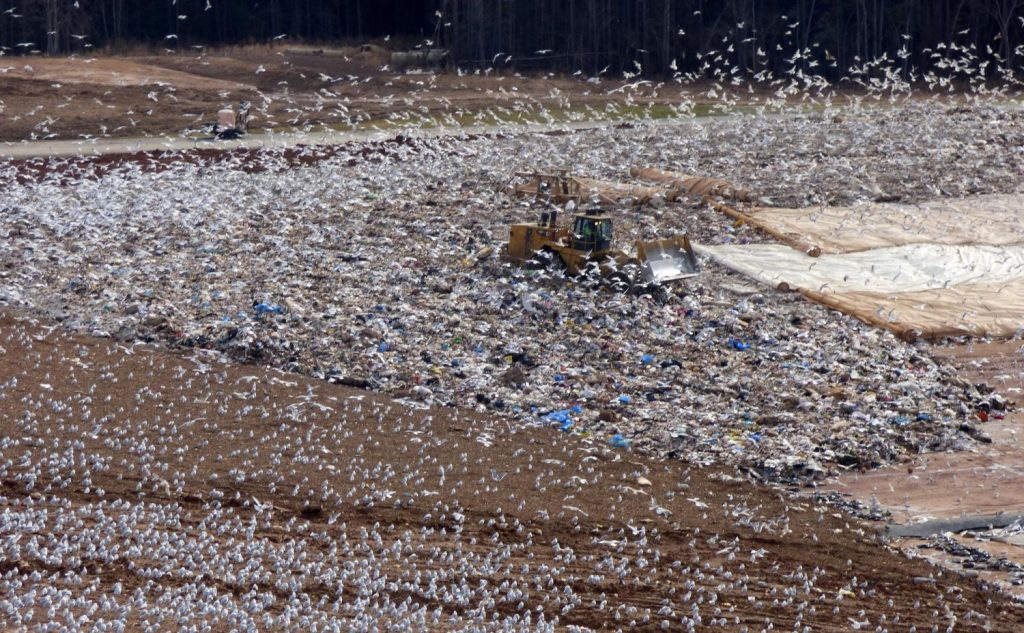

Over 1.4 million seagulls feed on things in landfills across North America. The feces of these seagulls poses a threat to waters as they contain so many chemicals in them from the trash they indigent.
Duke University estimates that these seagulls which feast at landfills deposit an extra 240 tons of nitrogen and phosphorus in the nearby lakes or water sources in North America each year.
The additional supplements contained in the birds’ droppings can add to broad algal sprouts that deny surface waters of a large part of the oxygen expected to support solid sea-going creature life – a cycle known as eutrophication.
Oxygen exhaustion and algal poisons that outcome from the blossoms can have expansive natural and financial effects, including fish kills, inflated costs for neighborhood legislatures, and diminished sporting or fishing values in impacted waters.
We need to be more responsible about how we recycle our trash! Let’s hope that new inventions are made to change how trash is recycled.
Author: Sri Nihal Tammana
Source: Duke University.
PC: Scott Winton, Duke


© copyright 2022 by Recycle My Battery